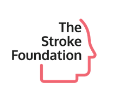Since lockdown started, pretty much everything in our lives changed. Our entire routine was thrown out of the window and we had to suddenly adjust to a new way of doing things. The only thing that has not changed, and is in fact more pressing now than ever, is getting access to health services — safely and quickly.
Telehealth has revolutionized the way people around the world access essential health services. Defined as “the use of digital information and communication technologies, such as computers and mobile devices, to access health care services remotely and manage your health care,¨ telehealth has been instrumental in enhancing the patient-doctor relationship, providing rural communities with access to health practitioners, and helped anyone with a smartphone have more control over their daily wellbeing.
COVID-19 and access to healthcare
The virus has forced us all to stay home as much as possible and limit human interaction. For many people, this means not having access to the level of health care they used to have. In fact, the CDC reports that non-COVID emergency visits to the hospital have dropped more than 40% since the pandemic started. These visits include everything from a scrape, a broken bone, to a heart attack or stroke.
In serious emergency situations, like a heart attack or a stroke, it is imperative that you call 911. Emergency services are entirely equipped to treat you while maintaining all security measures, and hospitals do contain COVID-19 patients in a specific area so that emergencies do not come in contact with infected people.
Treating heart attacks and stroke in a timely manner can save your life — always call 911 if you believe you or a loved one may be having a heart attack or stroke.
Remote stroke recovery
For those recovering from a stroke, a typical visit to a physical therapist or a psychologist may not be an option right now. This is where telehealth comes into play and can be very beneficial to keep your recovery on track.
In Spain, stroke survivors unable to attend in-person rehabilitation sessions due to the pandemic have benefited from a virtual group rehabilitation program funded Grupo Vithas. Many across the world have implemented a way of reaching patients virtually and we hope to see stroke recovery become more accessible to everyone, wherever they are.
Taking care of your mind and body during quarantine is very important to keep all the progress you’ve made in your recovery. Maintaining an active routine, eating healthy, getting support for your mental wellbeing, and making progress in your physical rehabilitation can all benefit from online services:
- Apps for tracking daily tasks — sometimes the days seem to merge together and it’s difficult to maintain an active and organized routine. Here we have gathered some apps you can use to help you in your daily routine.
- Maintaining a healthy diet — eating well not only will make you feel better, but it will also help you sleep better, have more energy and support your mental wellbeing. Here is a list of apps that can help you keep a healthy diet.
- Support for mental wellbeing — if you do need to talk with a mental health professional there are plenty of online options you can access. Here is a list of some of the most popular ones.
- Online physical therapy — if you are far along in your physical rehabilitation you may benefit from some sessions with a physical therapist online. Your PT may be able to provide you with online sessions or recommendations to PTs online.
Also keep in mind that your local health practitioners may have implemented remote solutions to keep treating you; be sure to stay in touch with them. While all these options are hugely beneficial to some, telehealth access is still limited for many people. Rural communities with poor internet access, people with a low income, and those not familiar with technology may not be able to take full advantage of the benefits of telehealth.
We hope many good things come out of this uncertain and tragic time we are living through — healthcare should be accessible to everyone, regardless of socioeconomic status, location, or ability to use technology.





